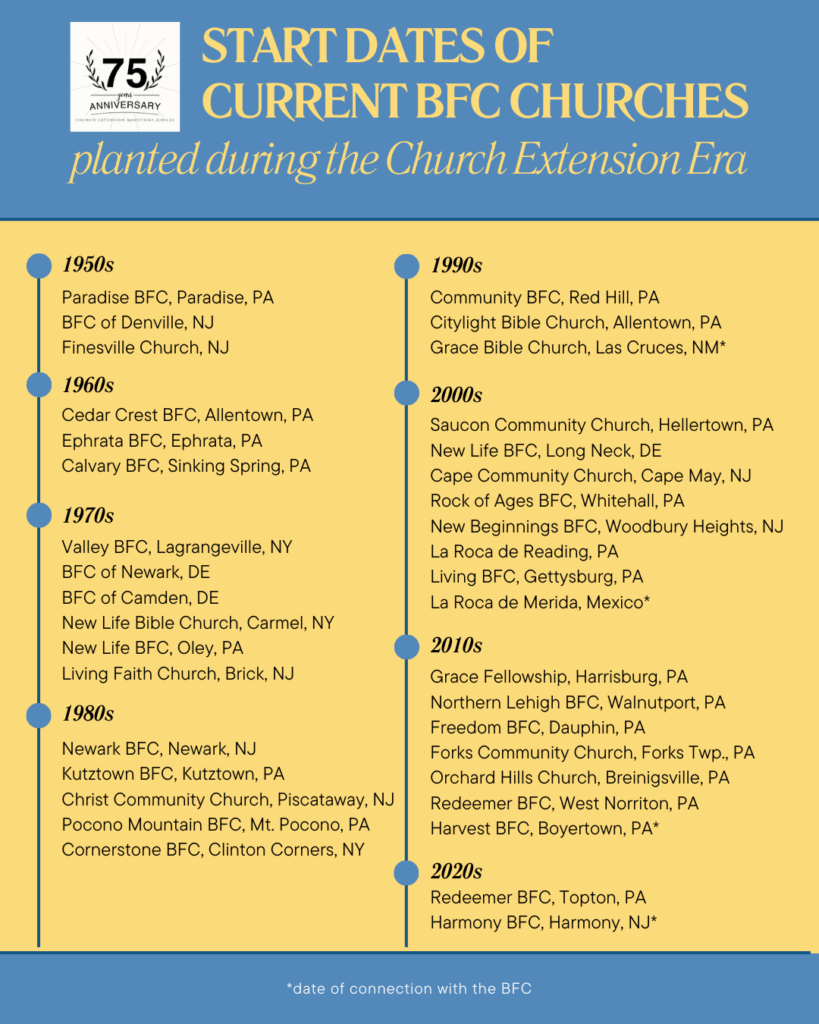Is any church an accident? The men who got together to start what is today called the Bible Fellowship Church did not intend to start churches. They simply wanted to share the gospel, to evangelize their neighbors. Organization and church buildings were not part of their thinking. They were farmers, not preachers. But revival came to Zionsville, Pennsylvania, and they were sharing the gospel wherever they had opportunity. They held meetings and soon their friends and neighbors were joining them. They began to meet in groups. Soon they found that homes were not adequate to accommodate their gatherings. So, they found buildings that would allow them to gather.

If you asked them what they were trying to do, they had an immediate answer. They were sharing the good news of Jesus Christ and inviting their neighbors to trust in Him. They would have said that is what God wanted them to do. It was not complicated for them.
They grew and became more organized. They created groups to enable them to do what they thought God wanted them to do. An organization of women was called the Gospel Workers. The organization of men was called the Gospel Heralds. The fact that the word “gospel” identified them was an indication that evangelism, not formation of churches, was their intention. Again, if you asked what they were doing, their answer was that they were preaching the gospel.
After World War II, change was creeping in and showed itself in a change of names. The Gospel Heralds became the Home Mission Society. We had already been sending missionaries around the world. Now, we would send missionaries to the towns of Pennsylvania. But still the idea of starting churches was not on the radar.

Toward the end of the 1940 decade, new vocabulary started to show. The phrase “church extension” began to appear. At first it was used a description of part of what the Home Mission Society would be tasked to do. Later, the name was officially adopted and Church Extension Ministries was birthed. But it was not merely a name change. It began to be accepted that we were called to plant churches, not simply evangelize. Church planting was to be prioritized. Evangelism was vital to the life of a church but not disconnected from church planting. Evangelism through church planting became the goal of the work. Now our marching orders are understood that we are to be an expanding fellowship of churches united to make disciples of Jesus Christ.
Evangelism by itself is not the whole story. Churches apart from evangelism are an impossibility. We are to evangelize, to preach the gospel, and create communities of those who follow Jesus. That is what Jesus meant when He said, “I will build my church.” Churches do not happen by accident. They are God’s plan.


Article by Richard Taylor, Mentoring Assistant and Chairman of the Board of Church Extension Ministries